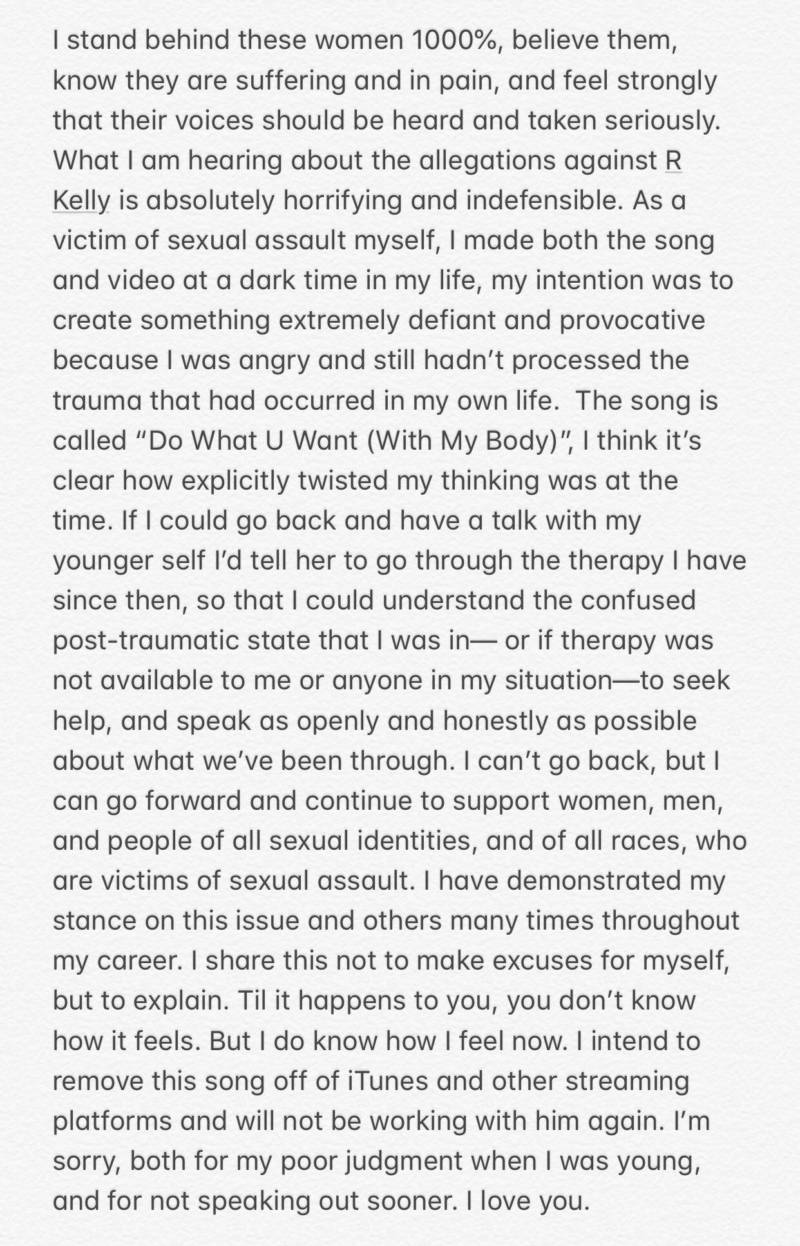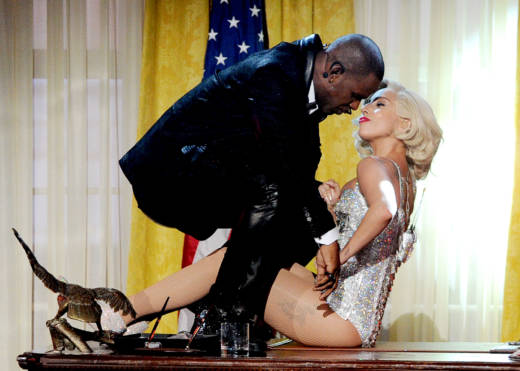There are too many musicians and industry people culpable in R. Kelly's ongoing career to name. (Let's not forget that Spotify amended its decision to remove R. Kelly from its platform last year after pressure from Kendrick Lamar. Or that Damon Dash and Jay-Z's friendship ended after Dash told Jay about Kelly's abuse of Aaliyah, and Jay moved forward with 2002's Best of Both Worlds collaboration anyway.) And it's true that women almost always end up doing the heavy lifting when it comes to issues around sexual abuse, while men get to stay in the shadows. But the truth is, no one else in this picture is in quite the same position as Gaga.
Her current silence isn't just a PR nightmare for her, it's becoming a dividing line and a focal point, an egregious example of how white women, even ones actively involved in social justice causes, can discard the experiences of women of color. Where Erykah Badu can take to Instagram and plead the fifth on the subject ("A wise woman once said...nothing" she just posted, under pressure from fans), Gaga's silence carries more weight, not just because of her higher profile, but also because of her inherent privilege.
The longer Gaga stays uncharacteristically silent about the plight of these women at the hands of one of her collaborators, the larger the gulf feels between white feminists and feminists of color, all of which creates even more division at precisely the time when intersectionality should be taking center stage. A united front is needed now if justice is to ever be done.
All of the musicians who refused to appear in Surviving R. Kelly might pay some sort of price for not doing so, but Gaga has both the most to lose by staying silent and the most power to wield by speaking up. If she publicly turns her back on Kelly now, it might actually bring some comfort to those survivors who've been discarded as collateral damage, repeatedly, for years, by a music industry that cares more about sales than women's personal safety. Gaga, of all people, should already know that.



